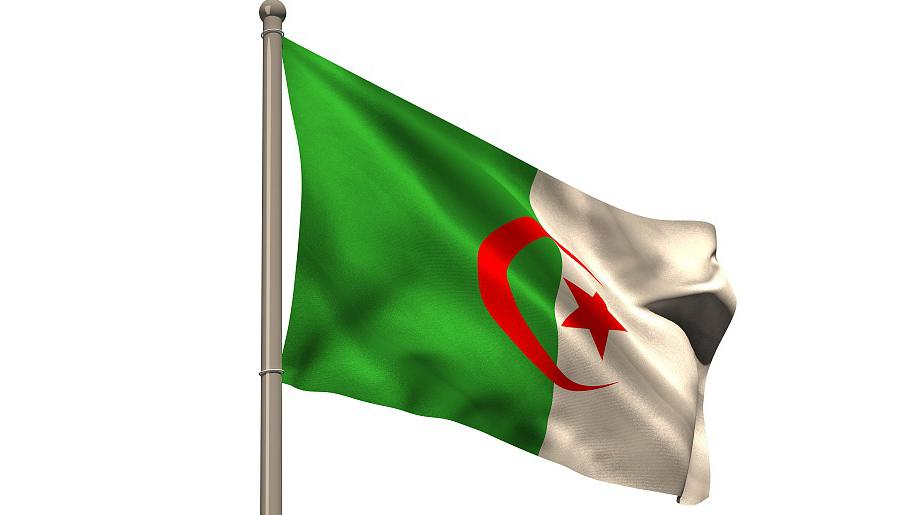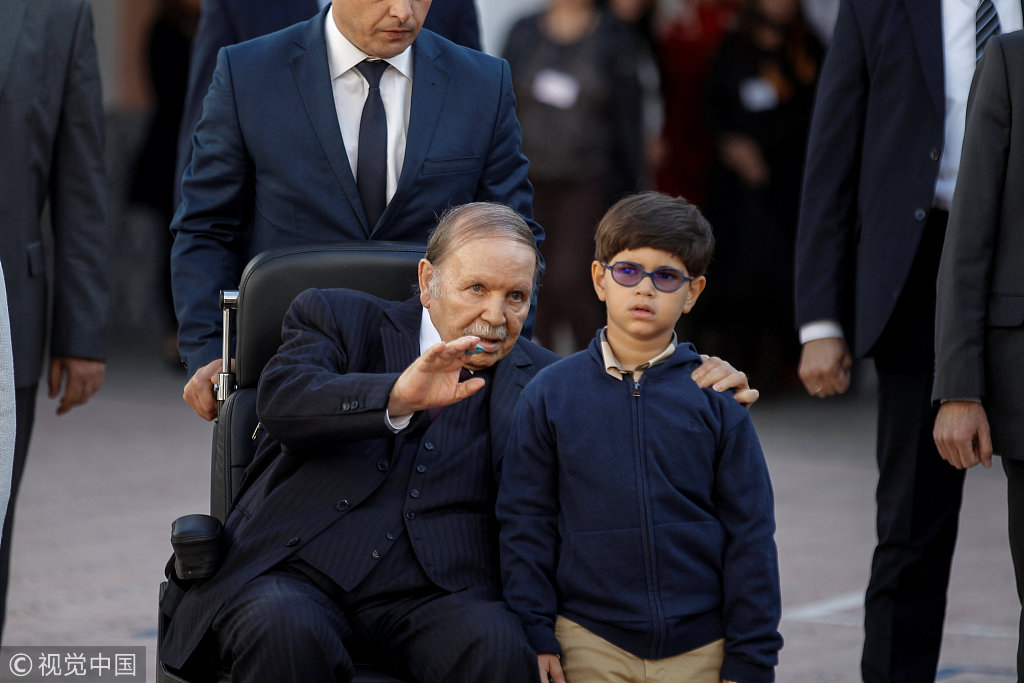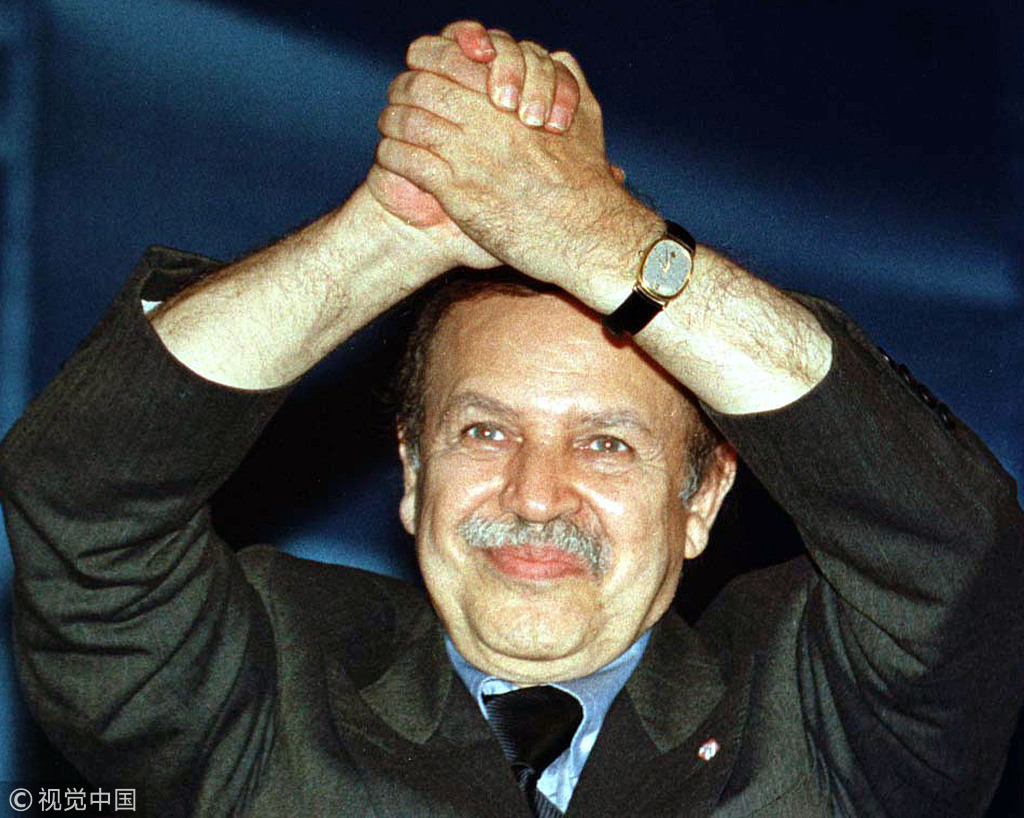
Opinion
22:50, 04-Apr-2019
The legacy of Bouteflika
Wang Jin

Editor's Note: Wang Jin is a PhD graduate from the School of Political Sciences at the University of Haifa of Israel, and a research fellow at Charhar Institute in China. The article reflects the author's opinion, and not necessarily the views of CGTN.
With the resignation of President Abdelaziz Bouteflika, Algeria might be seeing the beginning of a new era. As a president who has been in power for nearly two decades and a political leader who witnessed the establishment and development of modern Algeria, Bouteflika would be remembered as one of the most important figures in the history of the country.
Bouteflika entered politics after the independence of Algeria and was promoted as minister of foreign affairs in 1963.

Bouteflika waves after casting his vote during the local elections at a polling station in Algiers, Algeria, November 23, 2017. /VCG Photo
Bouteflika waves after casting his vote during the local elections at a polling station in Algiers, Algeria, November 23, 2017. /VCG Photo
Under his guidance, Algeria, on the one hand, stood firmly with developing countries and organized and led the Non-Aligned Movement; on the other hand, it implemented many social and economic policies to boost domestic economic development.
Through all these internal and external policies, Bouteflika became one of the most popular political figures inside Algeria.
He then entered a difficult stage of his political career and was once forced to leave the country and live in self-exile in Europe. He staged a comeback after the 10-year civil war in Algeria and became the president with the backing of the military in 1999.
After becoming the president of Algeria, Bouteflika healed the frictions between Algerian military forces and political groups, and helped unite all the social factions together to eliminate the presence of Islamic extremists inside the country. Bouteflika proposed that all the extremists who gave up weapons would be forgiven, while hardliners would be eliminated by force. He also expanded the authority of police officers and soldiers to identify and arrest suspects to constrain and deter Islamist extremists.
After years of civil war, most Islamists were expelled out of Algeria or forced to hand in their weapons, and in the early 2000s, Algeria's social order and security were restored.

Bouteflika clasps his hands together during a political rally on the eve of the referendum vote September 15,1999. /VCG Photo
Bouteflika clasps his hands together during a political rally on the eve of the referendum vote September 15,1999. /VCG Photo
He also advanced the living standards of Algerian families and the jump in oil price in the 2000s provided Bouteflika with enough financial capabilities to earn public support inside Algeria.
With the dividends from oil and gas plants in Algeria, Bouteflika and his government provided Algerians with free education and health care systems and put forward the "One Million Apartments" project in 2004 to relieve the housing pressure. In the 1990s most Algerian families lived in small and confined spaces and some family members even had to sleep "by turn" to share the limited living space. In the late 2000s, most of the Algerian families share much bigger apartments.
Bouteflika's foreign policy was pragmatic. His government kept close ties with the West, especially with France and the U.S. to attract support and assistance to fight against the Islamic extremists inside Algeria.
Though being criticized at the beginning of his presidency, Algeria was then perceived as an important and reliable counter-terrorism partner in northern Africa after the "911" incident as it was one of the first countries to denounce the terrorist attack and participate actively in the U.S.-backed Trans-Sahara Counterterrorism Partnership.
Meanwhile, Bouteflika also kept close ties with the "East," and cherished cooperation opportunities with China. In 1971, he led the Algerian diplomatic group in the United Nations to support China's return to the UN. In 2014, Algeria became the first country in the Arab country to establish a comprehensive strategic partnership with China. And China for years has been the largest trade partner of Algeria.
Although Bouteflika resigned amid public protests, he is still considered to be the most important figure in Algeria and his leadership significantly changed and influenced the northern African state.
(If you want to contribute and have specific expertise, please contact us at opinions@cgtn.com.)

SITEMAP
Copyright © 2018 CGTN. Beijing ICP prepared NO.16065310-3
Copyright © 2018 CGTN. Beijing ICP prepared NO.16065310-3